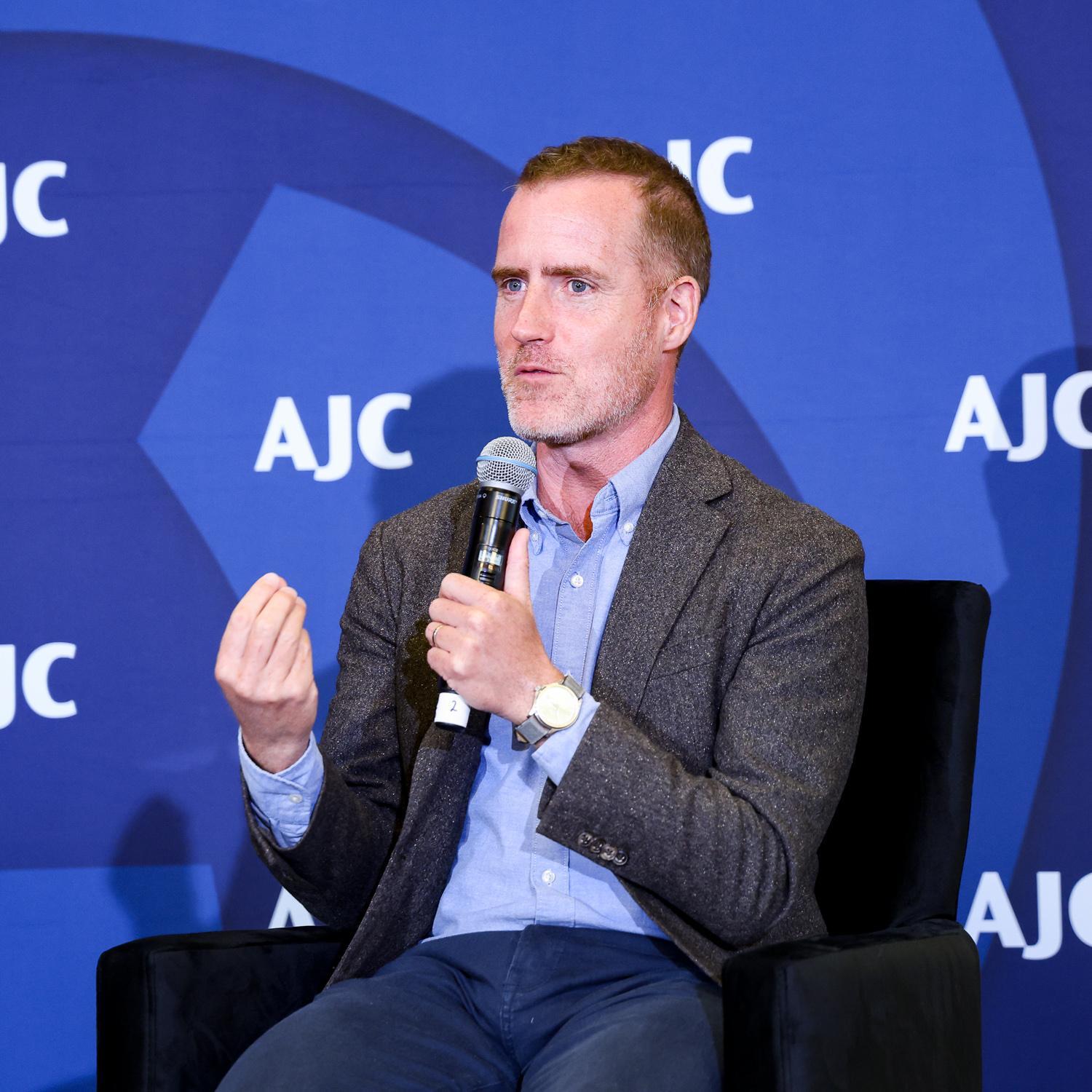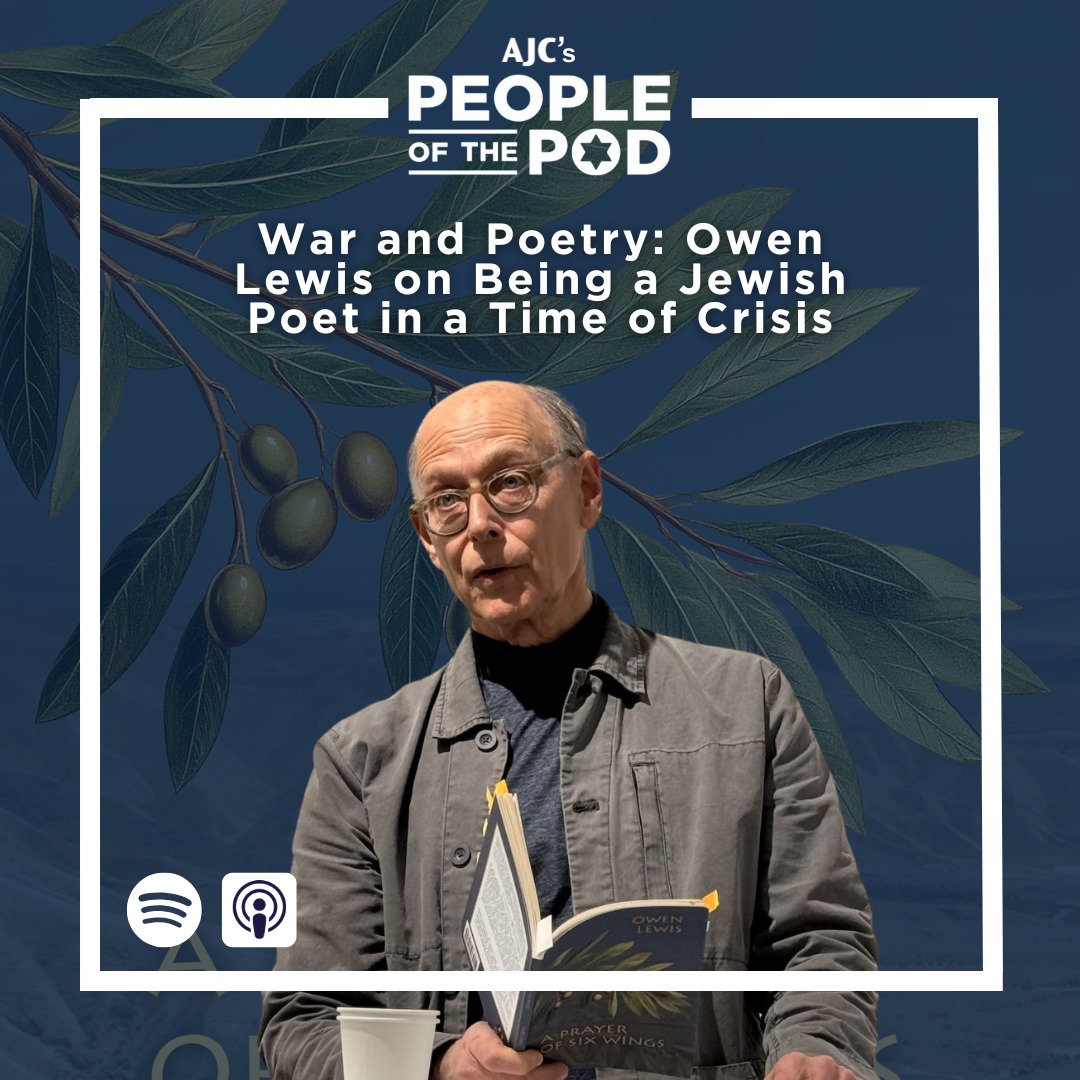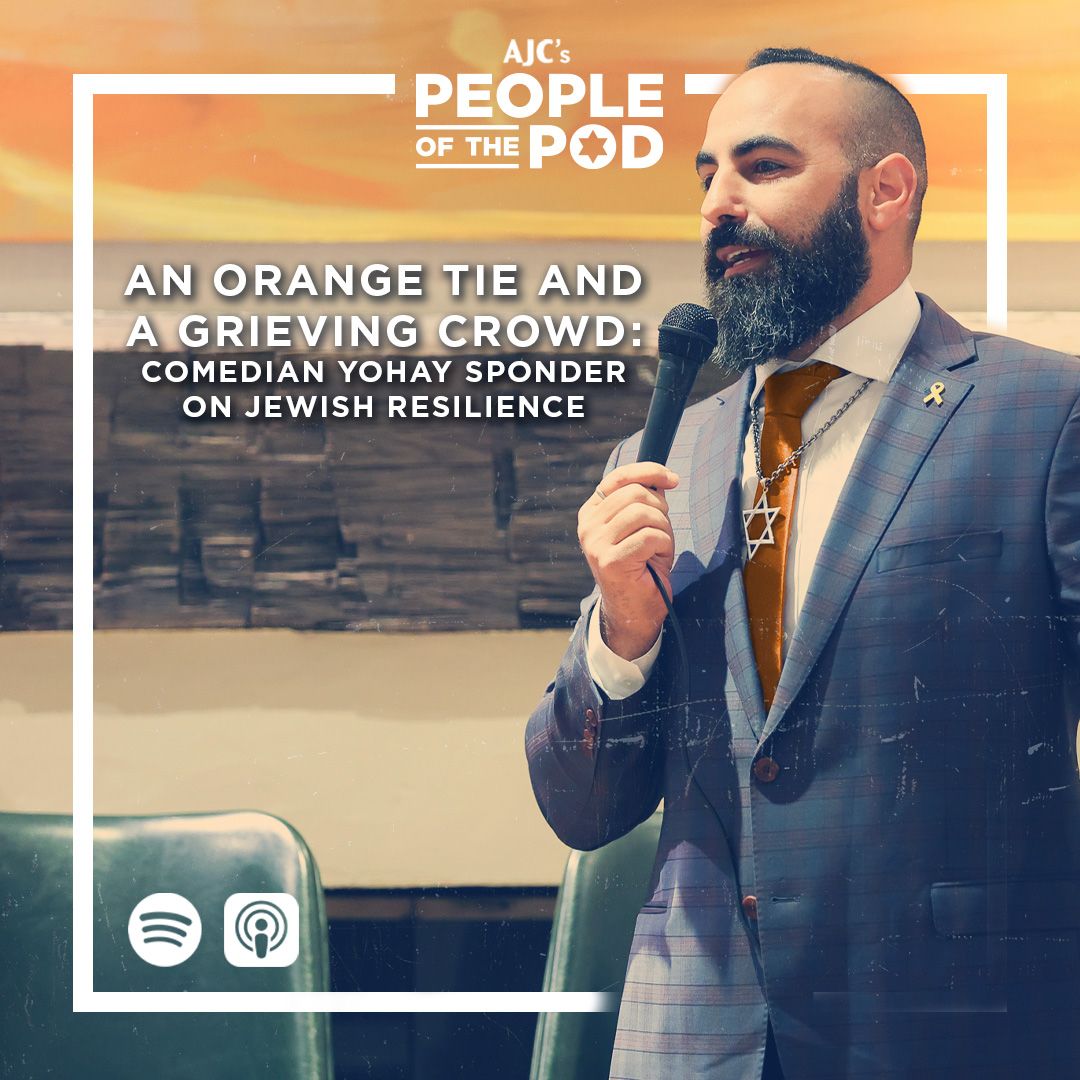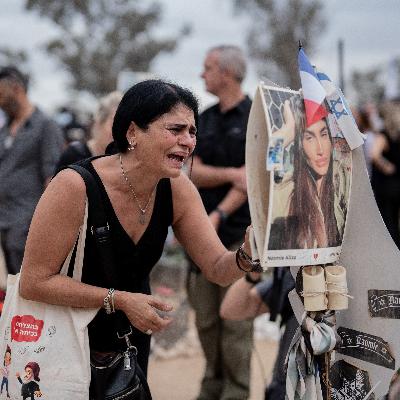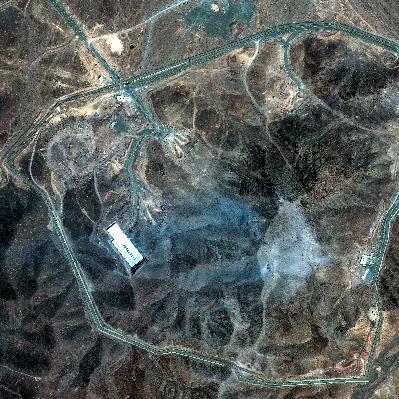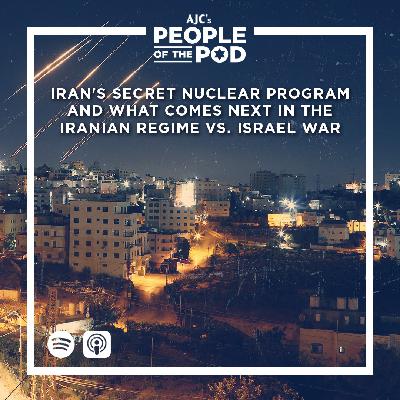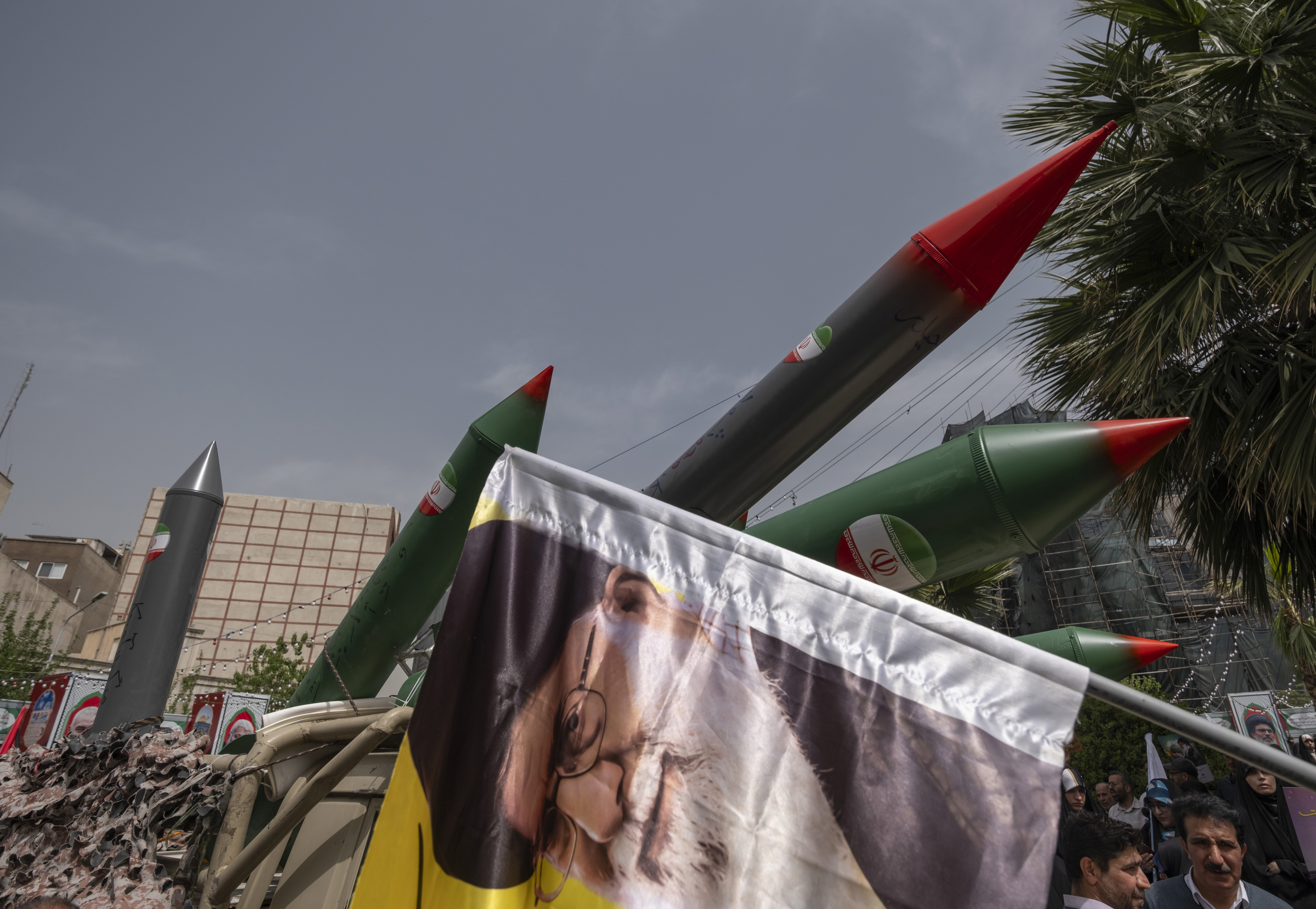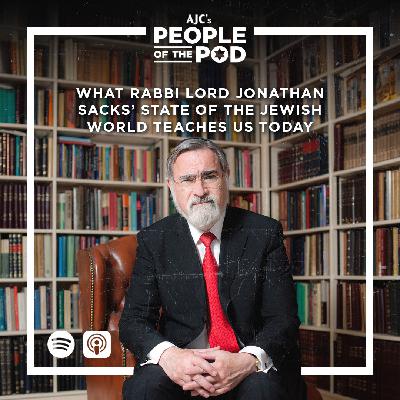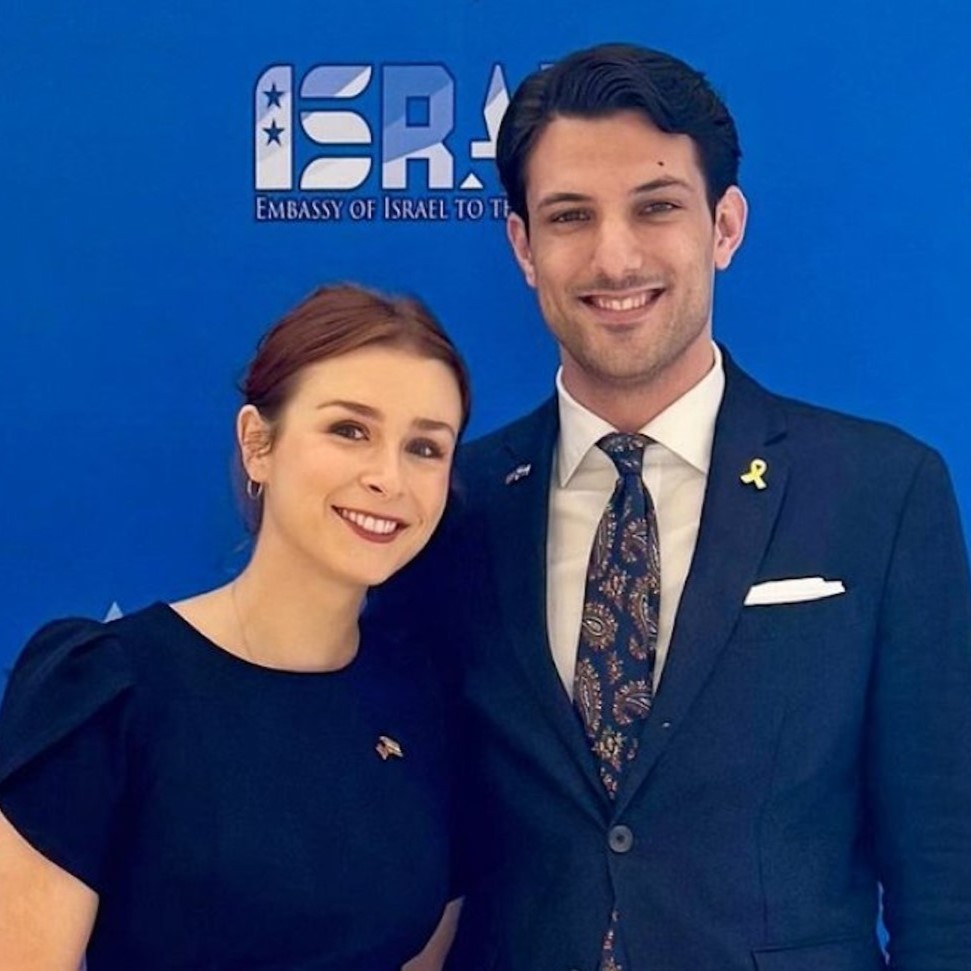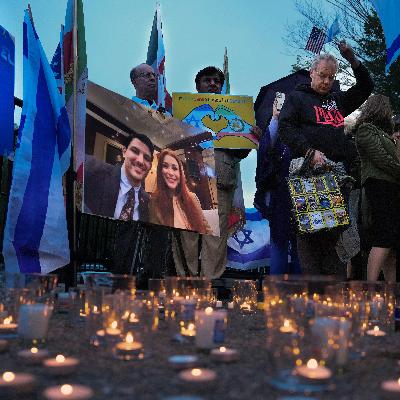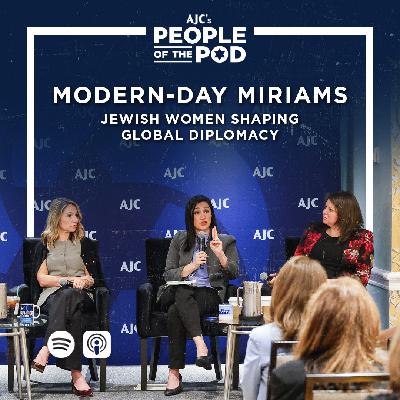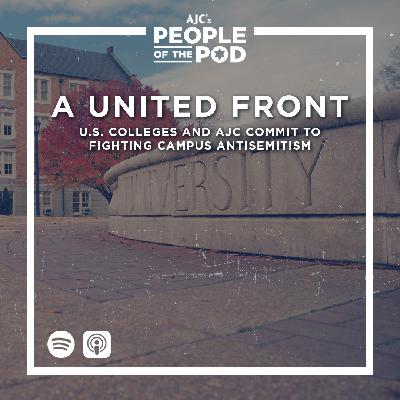Journalist Matti Friedman Exposes Media Bias Against Israel
Description
How has the media distorted Israel’s response to the October 7 Hamas attacks? In this powerful conversation from AJC Global Forum 2025, award-winning journalist and former AP correspondent Matti Friedman breaks down the media bias, misinformation, and double standards shaping global coverage of Israel. Moderated by AJC Chief Communications and Strategy Officer Belle Etra Yoeli, this episode explores how skewed narratives have taken hold in the media, in a climate of activist journalism. A must-listen for anyone concerned with truth in journalism, Israel advocacy, and combating disinformation in today’s media landscape.
Take Action:
-
Take 15 seconds and urge your elected leaders to send a clear, united message: We stand with Israel. Take action now.
Resources:
-
Global Forum 2025 session with Matti Friedman:: Watch the full video.
Listen – AJC Podcasts:
Follow People of the Pod on your favorite podcast app, and learn more at AJC.org/PeopleofthePod
You can reach us at: peopleofthepod@ajc.org
If you’ve appreciated this episode, please be sure to tell your friends, and rate and review us on Apple Podcasts or Spotify.
Transcript of the Interview:
Manya Brachear Pashman:
I’ve had the privilege of interviewing journalism colleague Matti Friedman: twice on this podcast. In 2022, Matti took listeners behind the scenes of Jerusalem’s AP bureau where he had worked between 2006 and 2011 and shared some insight on what happens when news outlets try to oversimplify the Israeli-Palestinian conflict. Then in 2023, I got to sit down with Matti in Jerusalem to talk about his latest book on Leonard Cohen and how the 1973 Yom Kippur War was a turning point both for the singer and for Israel.
Earlier this year, Matti came to New York for AJC Global Forum 2025, and sat down with Belle Yoeli, AJC Chief Strategy and Communications Officer. They rehashed some of what we discussed before, but against an entirely different backdrop: post-October 7. For this week’s episode, we bring you a portion of that conversation.
Belle Yoeli:
Hi, everyone. Great to see all of you. Thank you so much for being here. Matti, thank you for being here.
Matti Friedman:
Thanks for having me.
Belle Yoeli:
As you can tell by zero empty seats in this room, you have a lot of fans, and unless you want to open with anything, I'm going to jump right in. Okay, great.
So for those of you who don't know, in September 2024 Matti wrote a piece in The Free Press that is a really great foundation for today's discussion. In When We Started to Lie, Matti, you reflect on two pieces that you had written in 2015 about issues of media coverage of Israel during Operation Protective Edge in 2014. And this piece basically talked about the conclusions you drew and how they've evolved since October 7. We're gonna get to those conclusions, but first, I'm hoping you can describe for everyone what were the issues of media coverage of Israel that you first identified based on the experience in 2014?
Matti Friedman:
First of all, thanks so much for having me here, and thanks for all of the amazing work that you guys are doing. So it's a real honor for me. I was a reporter for the AP, between 2006 and the very end of 2011, in Jerusalem. I was a reporter and editor. The AP, of course, as you know, is the American news agency. It's the world's largest news organization, according to the AP, according to Reuters, it's Reuters. One of them is probably right, but it's a big deal in the news world.
And I had an inside view inside one of the biggest AP bureaus. In fact, the AP's biggest International Bureau, which was in Jerusalem. So I can try to sketch the problems that I saw as a reporter there. It would take me seven or eight hours, and apparently we only have four or five hours for this lunch, so I have to keep it short.
But I would say there are two main problems. We often get very involved. When we talk about problems with coverage of Israel. We get involved with very micro issues like, you call it a settlement. I call it a neighborhood. Rockets, you know, the Nakba, issues of terminology. But in fact, there are two major problems that are much bigger, and because they're bigger, they're often harder to see. One of the things that I noticed at the Bureau was the scale of coverage of Israel. So at the time that I was at the AP, again, between 2006 and the very end of 2011 we had about 40 full time staffers covering Israel. That's print reporters like me, stills photographers, TV crews. Israel, as most of you probably know, is a very small country. As a percentage of the world's surface, Israel is 1/100 of 1% of the surface of the world, and as a percentage of the land mass of the Arab world, Israel is 1/5 of 1%. 0.2%. And we had 40 people covering it.
And just as a point of comparison, that was dramatically more people than we had at the time covering China. There are about 10 million people today in Israel proper, in China, there are 1.3 billion. We had more people in Israel than we had in China. We had more people in Israel than we had in India, which is another country of about 1.3 billion people. We had more people in Israel than we had in all of the countries of Sub-Saharan Africa. That's 50 something countries. So we had more people in Israel than we had in all of those countries combined. And sometimes I say that to Jews, I say we covered Israel more than we covered China, and people just stare at me blankly, because it's Israel. So of course, that makes perfect sense.
I happen to think Israel is the most important country in the world because I live there. But if the news is meant to be a rational analysis of events on planet Earth, you cannot cover Israel more than you cover the continent of Africa. It just doesn't make any sense. So one of the things that first jumped out at me– actually, that's making me sound smarter than I am. It didn't jump out at me at first. It took a couple of years. And I just started realizing that it was very strange that the world's largest organization had its largest international bureau in the State of Israel, which is a very small country, very small conflict in numeric terms. And yet there was this intense global focus on it that made people think that it was the most important story in the world. And it definitely occupies a place in the American political imagination that is not comparable to any other international conflict.
So that's one part of the problem. That was the scope, the other part was the context. And it took me a while to figure this out, but the coverage of Israel is framed as an Israeli-Palestinian conflict. The conflict is defined in those terms, the Israeli Palestinian conflict, and everyone in this room has heard it discussed in those terms. Sometimes we discuss it in those terms, and that is because the news folks have framed the conflict in those terms. So at the AP bureau in Jerusalem, every single day, we had to write a story that was called, in the jargon of the Bureau, Is-Pals, Israelis, Palestinians. And it was the daily wrap of the Israeli Palestinian conflict. So what Netanyahu said, what Abbas said, rockets, settlers, Hamas, you know, whatever, the problem is that there isn't an Israeli=Palestinian conflict. And I know that sounds crazy, because everyone thinks there is.
And of course, we're seeing conflicts play out in the most tragic way right now in Gaza. But most of Israel's wars have not been fought against Palestinians. Israel has unfortunately fought wars against Egyptians and Jordanians and Lebanese and Iraqis. And Israel's most important enemy at the moment, is Iran, right? The Iranians are not Pale

